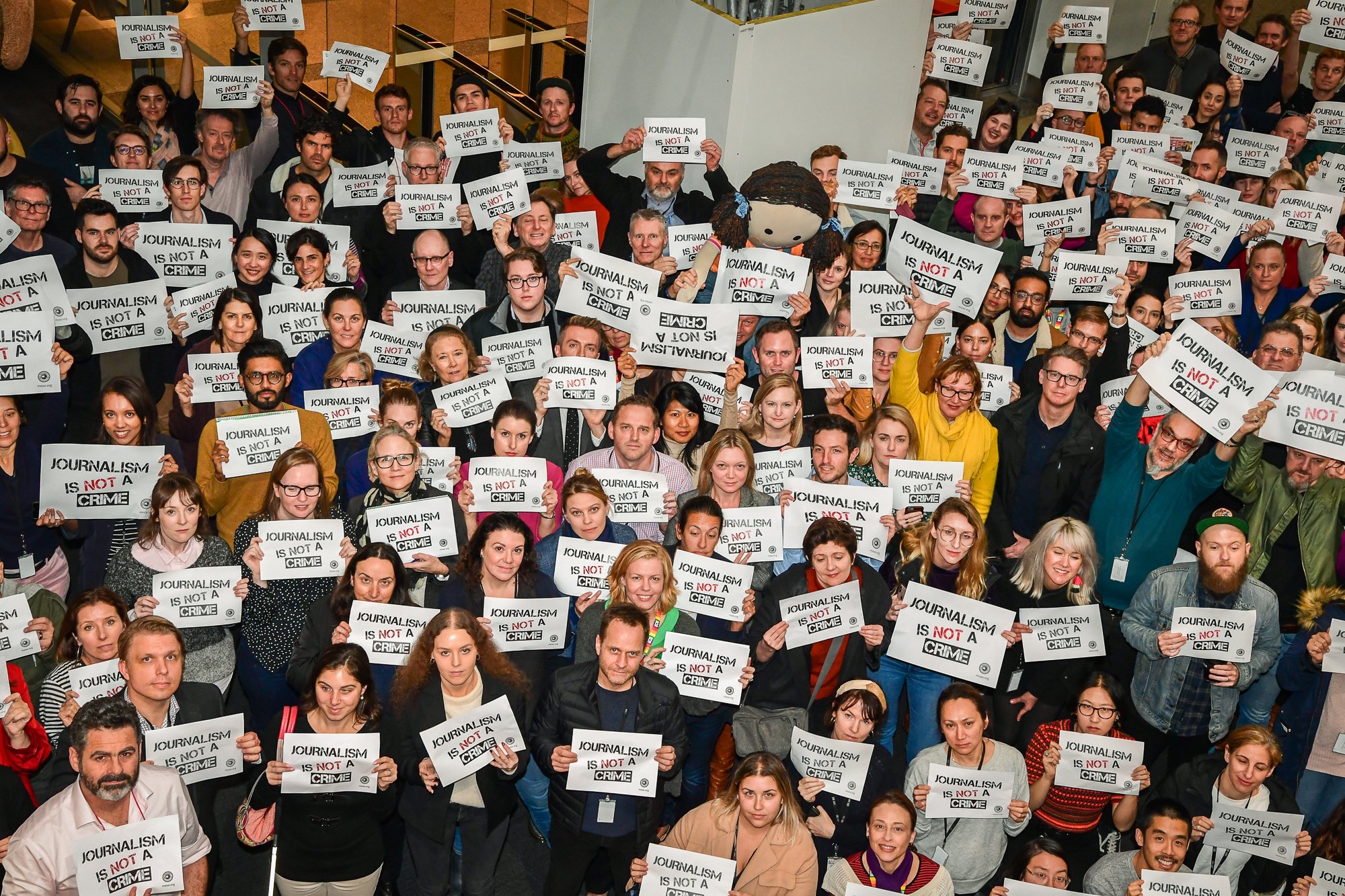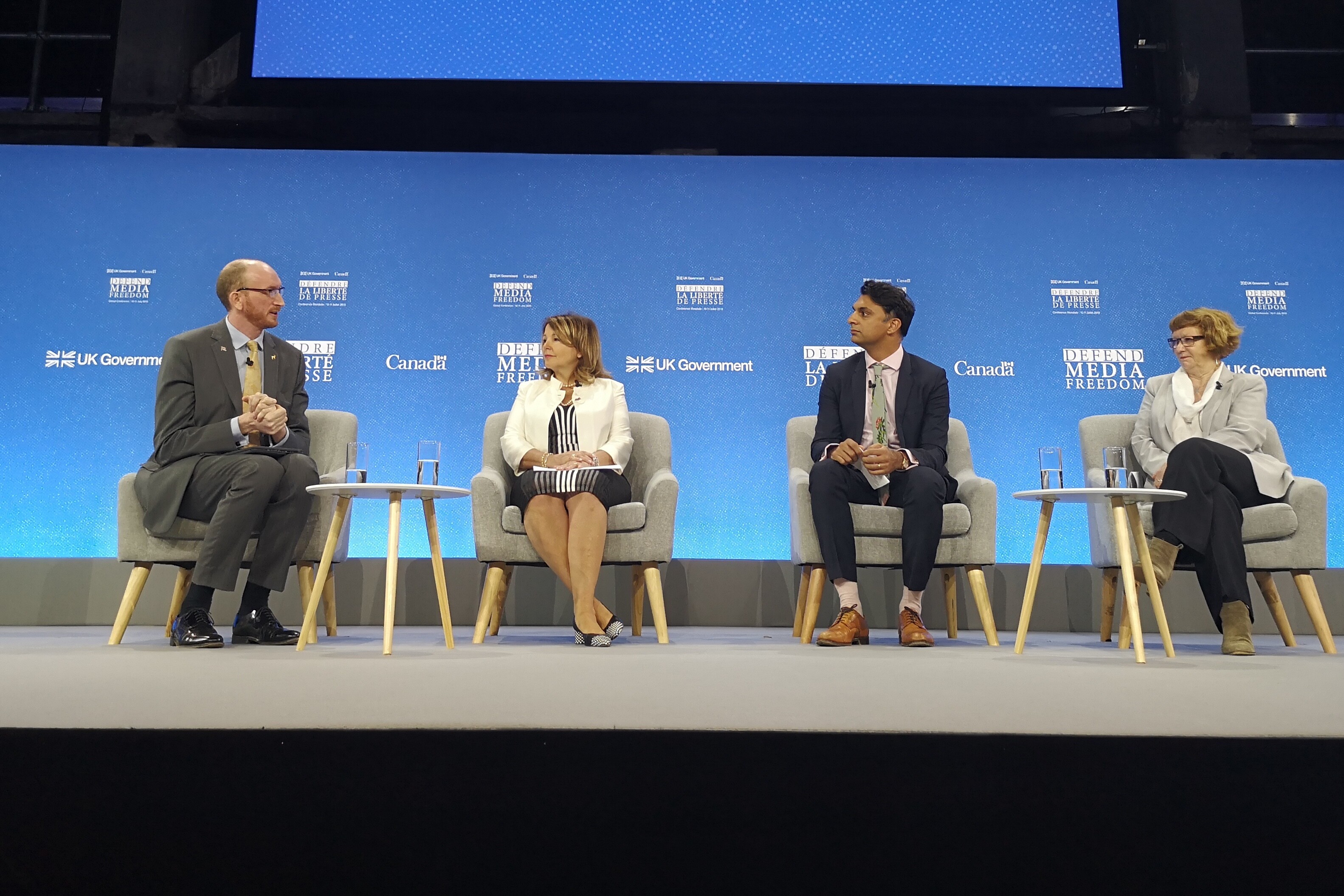The UK and Canadian Governments have made a strong stand for universal media freedom by launching a media freedom coalition – but they must follow through on the initiatives they have started.
Last week PMA participated in the inaugural Global Conference for Media Freedom in London, hosted by the UK Foreign & Commonwealth Office and the Canadian Ministry of Foreign Affairs.
Each year sees a plethora of ‘media conferences’ around the world and while face-to-face meetings are often worthwhile, the financial and environmental costs of bringing people together must be scrutinised. A few days post conference, the PMA team have had time to process and reflect on why this event did feel both worthwhile and refreshingly different.
Primarily, this was a multi-stakeholder conference. This is critical because as levels of media freedom continue to decline worldwide, the only realistic way of tackling the challenges is by stronger collaboration between governments, media organisations, journalists, civil society and media support agencies. And this renewed spirit of collaboration needs to extend to public media organisations.
“Media Freedom is a universal value not a Western one”, stated UK Foreign Secretary Jeremy Hunt MP, in opening the conference to 1,500 global delegates. There were 26 sessions, panels and plenaries ranging in focus from Transforming Media Development to What can Governments do to Increase Media Sustainability? Context is also critical and there were many sessions with a necessary region-specific focus.
Investigating and holding power to account is a key role for journalists but it is an ever more dangerous one as the death toll of journalists increases year on year. More shocking still is the fact that few perpetrators are ever held to account. Taking steps to end this parlous state of affairs is admirable but it is down to governments to provide an enabling environment for media freedom.
One of the first signs of weakening support for media freedom is when public media comes under pressure.
Public service media (PSM) goes beyond protections for individual journalists. It is an established framework for media freedom, where journalists work as part of an independent national media team, sharing and adhering to the same journalistic values. One of the first signs of weakening support for media freedom is when public media comes under pressure. ‘Under Pressure: Why Public Media Matters’ was the subject of PMA’s session attended by close to 300 delegates.
As panellists and speakers pointed out, the pressure usually begins with cuts to funding but includes ‘state capture’ and pressures from external actors. PSM is fundamental for media freedom but it also underpins informed democracy.
A number of initiatives were launched and announced at the conference including the Global Pledge on Media Freedom, where representatives of governments around the world signed a pledge to work together to protect media freedom and the High Level Panel of Legal Experts.
The significance of public media was highlighted in many sessions during the conference but a final Council of Europe (CoE) meeting noted that there is a need of a better cooperation between CoE, OSCE, Venice Commission, and the EU to monitor the situation within Europe and to strengthen the independence of PSM, especially in countries of recent democracy.
The Public Media Alliance will soon launch its own new global initiative to raise public and political awareness of the role and importance of public media. We look forward to working with you all to increase PSM collaboration and awareness. Next year the Canadian Government is to host the second Global Conference for Media Freedom and we plan to ensure that PSM is still firmly on the agenda.
Header Image: Amal Clooney speaking at the Global Conference for Media Freedom, 11 July, London. Credit: Chloe Howcroft/PMA

